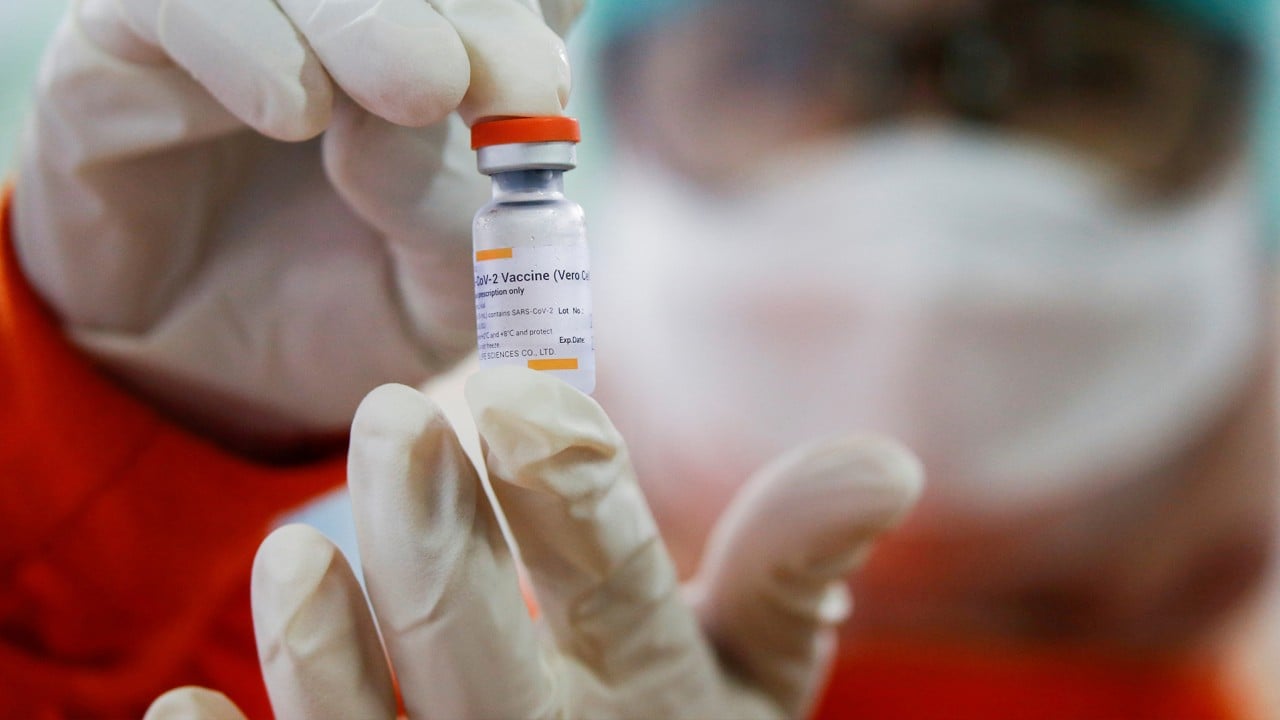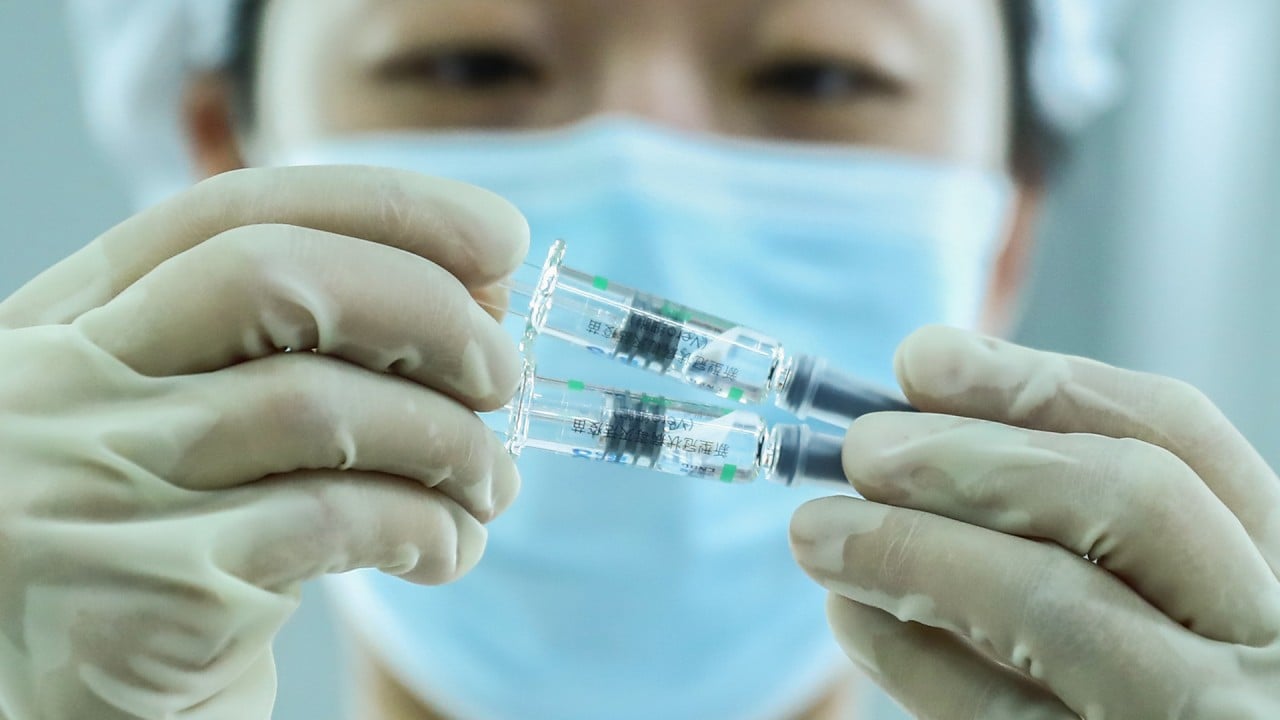
Chinese firm puts Covid-19 vaccine to landmark test in New Zealand
- Health official says it is the first time a vaccine created wholly in China has been used in human trials in a developed country
- Shot performed strongly in animal studies, researcher says
Vaccine developer Zhu Fengcai, deputy director of the Jiangsu Centre of Disease Control and Prevention, said it was the first time a vaccine wholly developed in China had been used in human trials in a developed country.
Other Chinese vaccine makers including Clover and Advaccine have conducted human trials in Australia in partnership with international companies or organisations.
Zhu, China’s top clinical trials investigator, said one of the goals was to eventually launch ReCov, the experimental vaccine, in developed countries.
“Until now all of the Chinese [coronavirus] vaccines have been exported to developing countries. We hope this vaccine, if successful, will be approved for export in developed countries,” Zhu said, adding similar trials would be conducted in China later.

01:30
WHO approves Sinovac Biotech’s coronavirus vaccine for emergency use
The vaccine has been developed in partnership with Jiangsu Rec-Biotechnology, which sponsored the human trials with Auckland Clinical Studies and the Christchurch Clinical Studies Trust, the latter two forming New Zealand Clinical Research last year.
Dr Chris Wynne, medical director of New Zealand Clinical Research, said the experimental vaccine had been given to the first group of participants and the last doses were expected to be administered in late August or early September.
The trial will proceed with caution, starting with low doses, and 20 per cent of the participants will be given placebos.
“There will be ongoing reviews for safety and efficacy. The earliest formal review will be within six weeks but the participants will be followed for a year,” Wynne said.
In animal studies, the vaccine candidate elicited high levels of neutralising antibodies, an indicator of strong immunity.
The randomised, double-blind, placebo-controlled study in New Zealand will involve 160 participants to evaluate the vaccine’s safety and its capacity to produce adverse reactions and an immune response in healthy adults up to 80 years old.
RecBio on Monday said one of ReCov’s advantages was that it did not have to be produced in high-level biosafety workshops. It involved a widely used production process and could be easily scaled up for production or technology transfer.
Coronavirus: too early to tell if vaccine booster shots are needed, WHO chief scientist says
RecBio also said it developed the vaccine’s adjuvant – a substance that increases immune response, cutting manufacturing costs to “one-tenth to one-fifth of vaccines of other technologies”.
In November, the company said it had started building a 500 million yuan (US$77 million) production facility in Taizhou, Jiangsu province. The facility will include workshops to produce stock solution, adjuvant, packaging and quality control, with an aim of reaching annual production capacity of 300 million doses in 2021.
ReCov uses recombinant technology, an approach that involves growing the DNA coding of a coronavirus antigen, which stimulates an immune response, in Chinese hamster ovary cells.
Such technology has been widely used in hepatitis B and HPV vaccines.
Another vaccine developed by Anhui Zhifei Longcom Biopharmaceutical, which has been approved for emergency use, is based on a similar technology. Most of the vaccines used in China’s vaccination drive are inactivated vaccines, a traditional technology that involves the whole chemically killed coronavirus.

02:01
China considers mixing Covid-19 vaccine types to boost effectiveness
A paper published in peer-reviewed journal National Science Review in March described how Zhu’s team developed a cocktail of neutralising antibodies targeting epitopes located on different domains of the spike protein of the coronavirus.
Combinations of immunogens in the N-terminal domain and the RBD provided complete protection in macaques when challenged with coronavirus.
The immunogenicity and protective efficacy of ReCov in rhesus macaques, mixed with adjuvant and placed against a placebo, showed the levels of neutralising antibodies were 20-fold higher than that of serum from a group immunised with an inactivated vaccine.
Zhu said the data should not be interpreted as 20 times more efficacious than the inactivated comparison vaccine because it was “only data from an animal trial” and the gap would not be so great in humans.
“The immunogenic data derived from immunisation with a combination of Sars-CoV-2 [the virus that causes Covid-19] RBD and NTD here demonstrates the feasibility of eliciting robust targeted immune profiles by using antibody-guided vaccine design and advance us a step forward towards a future of precision vaccines,” the authors wrote.

